A recent marketing e-mail I received from HarperCollins Publishers prompts me to discuss this publisher at this time. HarperCollins is the second largest publisher in the world. It has “publishing operations in 17 countries” and “more than 120 branded imprints around the world.” The company “publishes approximately 10,000 new books every year in 16 languages, and has a print and digital catalog of more than 200,000 titles.” It was founded by the Harper Brothers in 1817. I have several old books about the Bible in my library published by Harper & Brothers or its later incarnation, Harper & Row:
- Our Bible and the Ancient Manuscripts (4th ed., 1939), by Frederic Kenyon
- The Greatest English Classic: A Study of the King James Version of the Bible and Its Influence on Life and Literature (1912), by Cleland Boyd McAfee
- The Ancestry of Our English Bible (3rd ed., 1956), by Ira M. Price
Harper was also the publisher of the last two editions of A. T. Robertson’s A New Short Grammar of the Greek New Testament. News Corp acquired Harper in 1987 and William Collins, Sons in 1990, combining their names to create HarperCollins. In keeping with the nature of The Preacher’s Library, what we are interested in is religious books published by HarperCollins. Are there any, and if so, are any of them worth reading? It should first be noted that HarperCollins is the parent company of the Christian publishers Zondervan and Thomas Nelson. They are under the umbrella of HarperCollins Christian Publishing, and I will discuss them in future posts.

Clicking on the category “Religion and Inspiration” on the HarperCollins website returns 1,491 results. As you can imagine, most of it is garbage, like My Spiritual Journey, by the Dalai Lama. The main imprint of HarperCollins for religious books is HarperOne. Here one will find books by a diverse group of authors, including such well known ones as C. S. Lewis, N. T. Wright, Bart D. Ehrman, and Jim Wallis. There are just a handful of books published by HarperOne that are worth reading. Out of the 1,036 books currently listed on the HarperOne site, I have four of them.
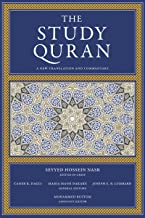
For reference, there is the massive 2,048-page The Study Quran, described as “an accessible and accurate translation of the Quran that offers a rigorous analysis of its theological, metaphysical, historical, and geographical teachings and backgrounds, and includes extensive study notes, special introductions by experts in the field, and is edited by a top modern Islamic scholar, respected in both the West and the Islamic world.” Naturally, it does not provide a negative view of the Koran, but there are other books that do that. If you live in an area with a large Muslim community and want to have a wide variety of resources on Islam at your disposal, then this is the only reason that you would want to have this volume.
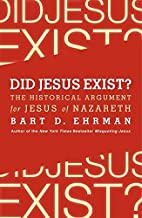
Although Bart D. Ehrman is an agnostic who departed from the faith after attending Moody Bible Institute and Wheaton College and then going to Princeton Theological Seminary, his book Did Jesus Exist? The Historical Argument for Jesus of Nazareth (2012) is an important one. There are some atheists, agnostics, humanists, and assorted nut jobs out there who not only deny the virgin birth, deity, miracles, and resurrection of Christ, but also deny that Jesus ever even existed. Ehrman destroys them.
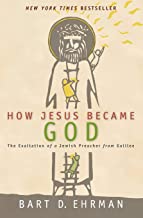
The other Ehrman book in my library published by HarperOne is not one I can recommend. I have reviewed How Jesus Became God: The Exaltation of a Jewish Preacher from Galilee (2014) along with the response to it by Michael F. Bird, Craig A. Evans, Simon Gathercole, Charles E. Hill, and Chris Tilling called How God Became Jesus: The Real Origins of Belief in Jesus’ Divine Nature (Zondervan, 2014) in a single review that appeared in the Winter 2015 issue of the Journal of Dispensational Theology (pp. 294-298).
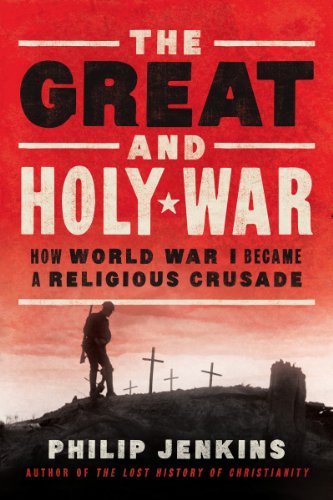
There are a lot of good things that I could say about The Great and Holy War: How World War I Became a Religious Crusade (2014) by Philip Jenkins. As I said at the end of my review of this book: “The religious aspects of World War I are unmistakable and essential for understanding the war. Philip Jenkins has written one of the most informative and important books about the Great War.”
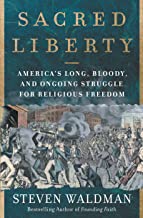
I thought for sure I owned a copy of Sacred Liberty: America’s Long, Bloody, and Ongoing Struggle for Religious Freedom (2019) by Steven Waldman, but can’t seem to find it on my bookshelves. It is definitely worth reading. I used to have On the Preparation and Delivery of Sermons (4th ed., 1979, revised by Vernon L. Stanfield) by John Broadus (1827-1895) and Early Christian Doctrines by J. N. D. Kelly (first published in 1958 by A & C Black in London; Harper 5th ed., 1978), but have long since gotten rid of them. I think I may also at one time have owned The Religious History of America: The Heart of the American Story from Colonial Times to Today (rev. ed., 2002) by Edwin S. Gaustad and Leigh Schmidt and Idioms in the Bible Explained and a Key to the Original Gospels (1985, but originally separate books published much earlier) by George M. Lamsa.
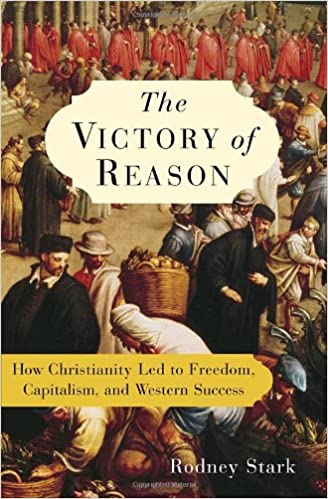
I have not read and do not own The Rise of Christianity: How the Obscure, Marginal Jesus Movement Became the Dominant Religious Force in the Western World in a Few Centuries (1997; originally published by Princeton in 1996) or The Triumph of Christianity: How the Jesus Movement Became the World’s Largest Religion (2011), both by Rodney Stark, but I am familiar with them. I recommend instead Bart D. Ehrman’s The Triumph of Christianity: How a Forbidden Religion Swept the World (Simon & Schuster, 2018), which I have reviewed for the New American. I do not recommend Stark’s other HarperOne title, God’s Battalions: The Case for the Crusades (2010), but I do recommend his The Victory of Reason: How Christianity Led to Freedom, Capitalism, and Western Success (Random House, 2005). There are no other religious books published by HarperOne worth reading. I have heard good things about 1492: The Year the World Began (2010) by Felipe Fernandez-Armesto, but it is a purely secular book. Not sure why it was published under the HarperOne imprint. I will keep you posted as to any future HarperOne books worth mentioning.
Under the Harper Perennial imprint, I note only four valuable religious books:
- The Protestant Reformation (rev. ed., 2009), by Hans Hillerbrand
- Civilization of the Middle Ages (rev. ed., 1994), by Norman Cantor
- The Jesuits: Missions, Myth and Histories (2005), by Jonathan Wright
- God’s Secretaries: The Making of the King James Bible (2005), by Adam Nicolson
I have read and used to own the Cantor book. I have not read and neither do I own the Hillerbrand and Wright books, but would not hesitate to get them if I were studying those subjects. The Nicolson book is highly recommended, and will be discussed in a future post. I should also mention that HarperCollins has a conservative imprint called Broadside Books.